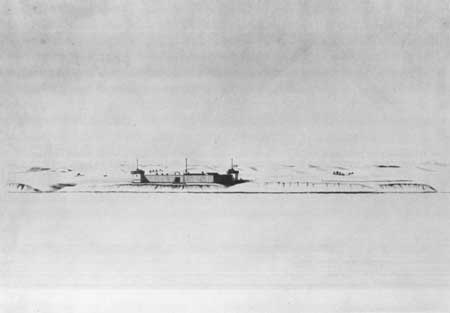|
The Upper Missouri Fur Trade Its Methods of Operation |
 |

Isaac Sprague, 1843. Isaac Sprague, Jr.
The life of the fur trader was attended with numerous dangers. Some lost their lives in boat wrecks transporting furs and merchandise on the Missouri. While the Indians were normally friendly toward the fur traders, they sometimes attacked and pillaged small parties. In 1830 three white traders were murdered and robbed of their merchandise by the Arikara who had smoked with them and had given every indication they were friendly. [74] A short time later, the Arikara pillaged and robbed Kenneth McKenzie's party while they were transporting goods. [75] Such incidents were not rare. [76]
The trader was frequently in danger at the posts themselves. The Indians, being a primitive people, were very suspicious. They blamed the white man for such plagues as the small pox and cholera which carried away many on the Upper Missouri. During these epidemics, the traders' lives were often in danger. The Indians' code was "an eye for an eye and a tooth for a tooth." Every injury real or imaginary called for revenge. They were always unpredictable. Larpenteur relates that in the 1830's a drunken Indian, the son of a chief, rushed into his lodge and tried to kill him because he believed Larpenteur had cheated him. [77]
On another occasion, despite the company's opposition, one of the Arikara chiefs at Fort Clark had gone down to Council Bluffs on the company's boat and was killed by the Pawnee. The Arikara blamed the company for his death and decided to make them pay for it. When the company boat arrived at the Ree village at Fort Clark, the following year, the Indians invited Alexander Culbertson to feast with them. Unarmed, he and a young man of the fort went to a hut where the feast was to be held. There he found the Indians all armed to the teeth. He learned that great dissatisfaction existed among them. They charged Culbert son with murdering the chief and demanded pay for his blood. After a stormy session, Culbertson settled the matter by promising to pay them two horses. They allowed him to depart in safety and he later sent them the horses. Similar incidents happened to other traders. [78]

|

|
|
|
|
Last Modified: Sat, Jan 15 2005 10:00:00 am PDT |


